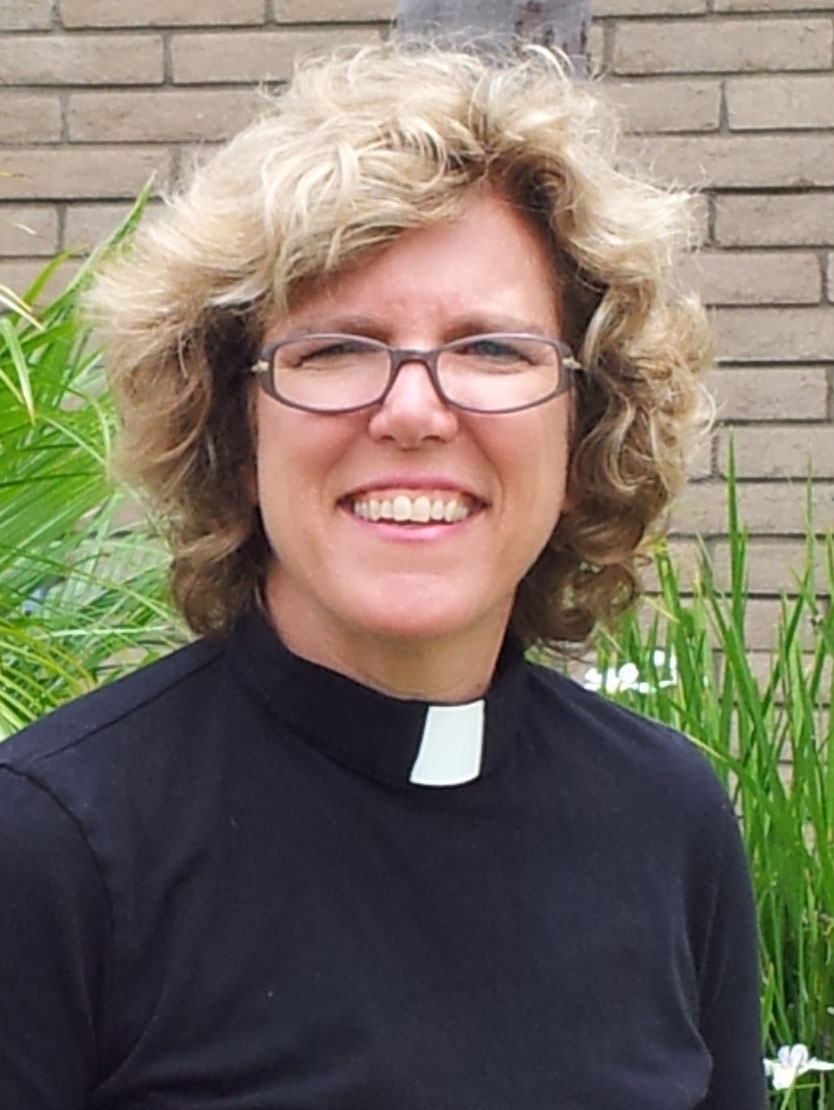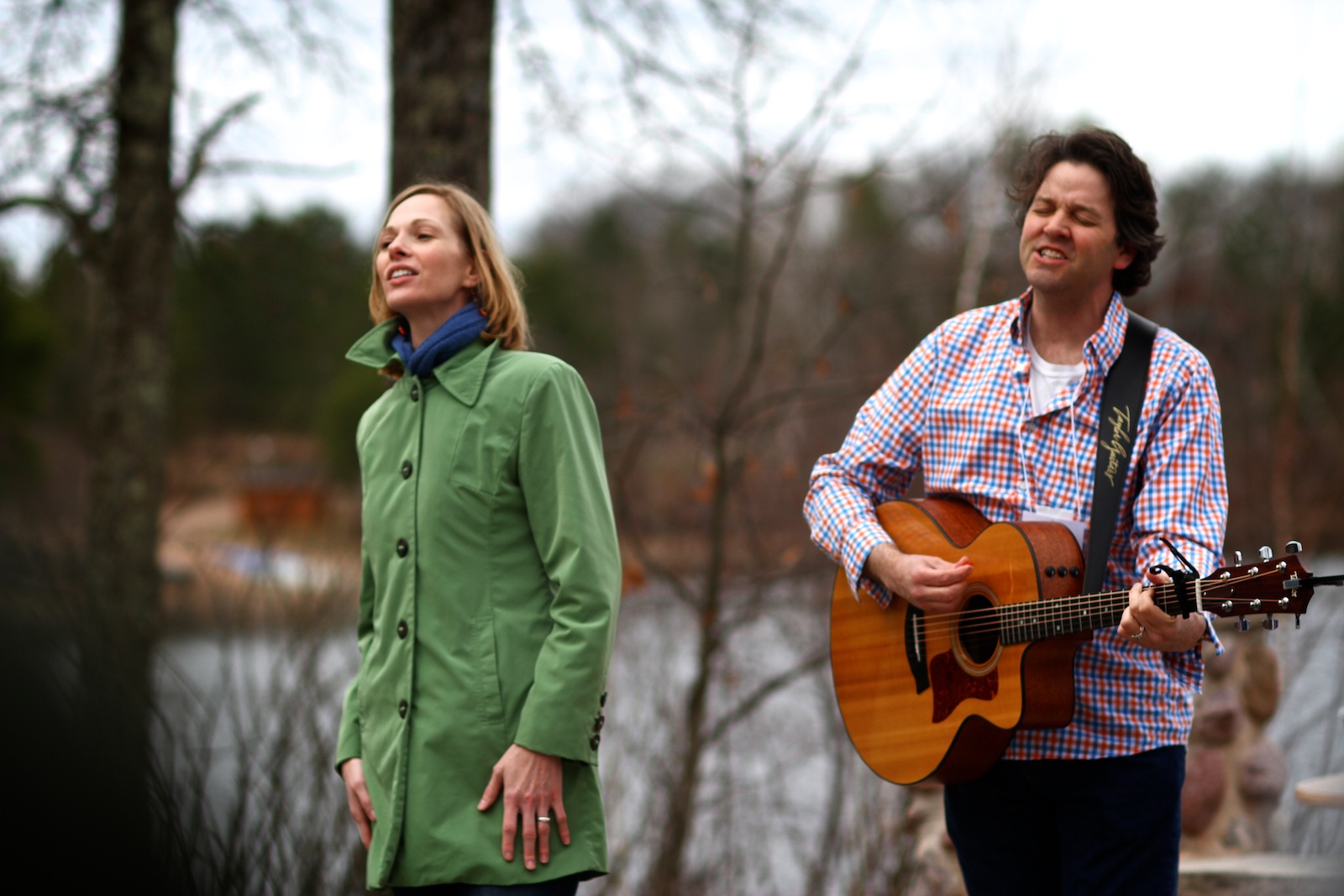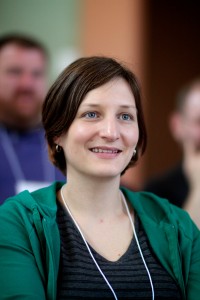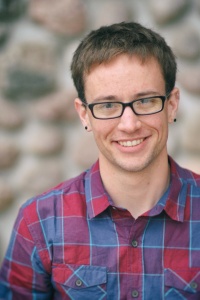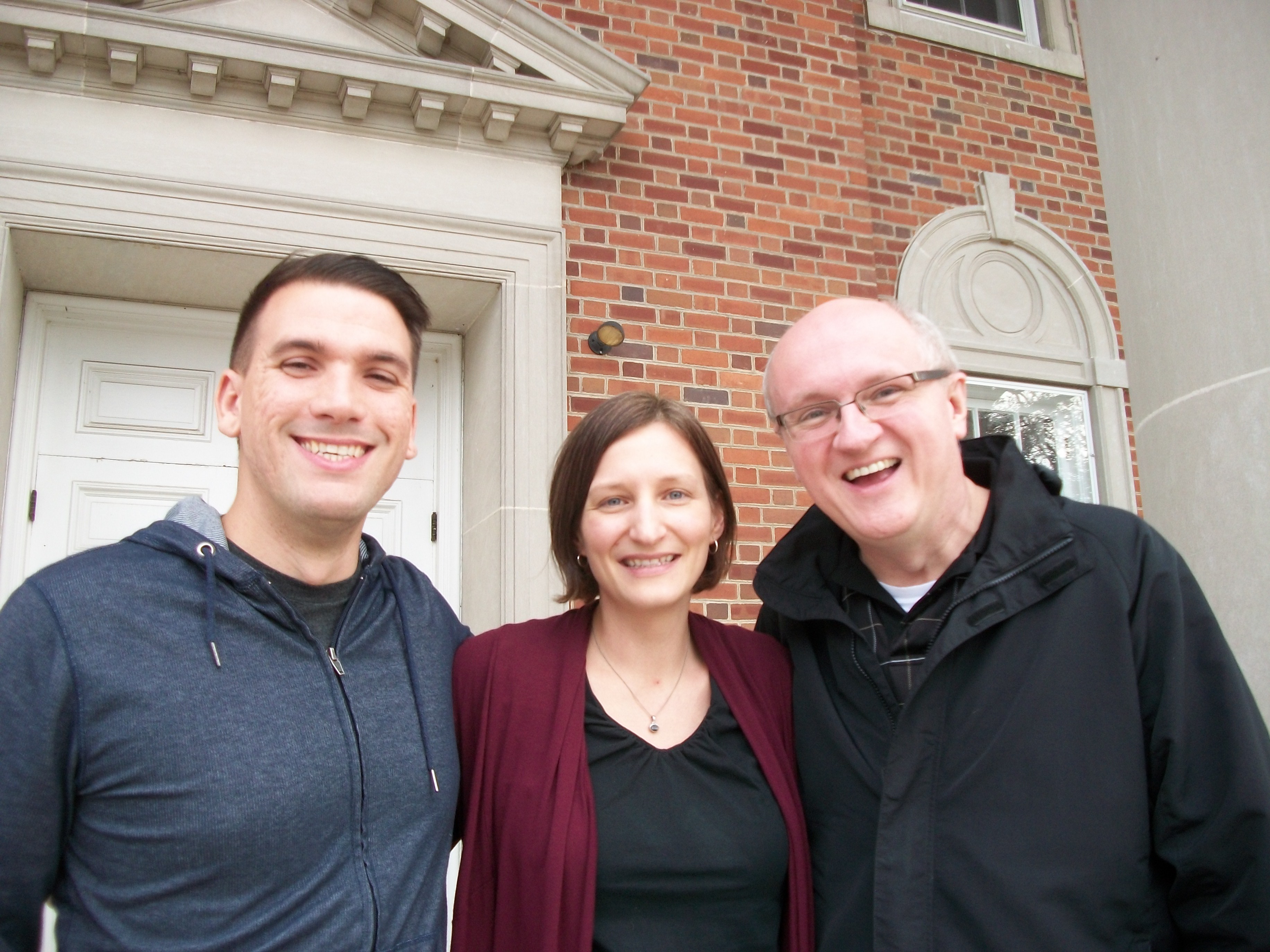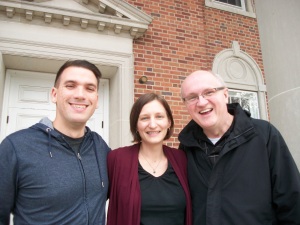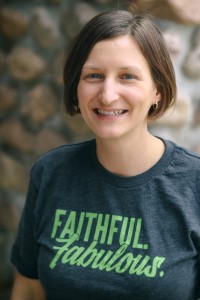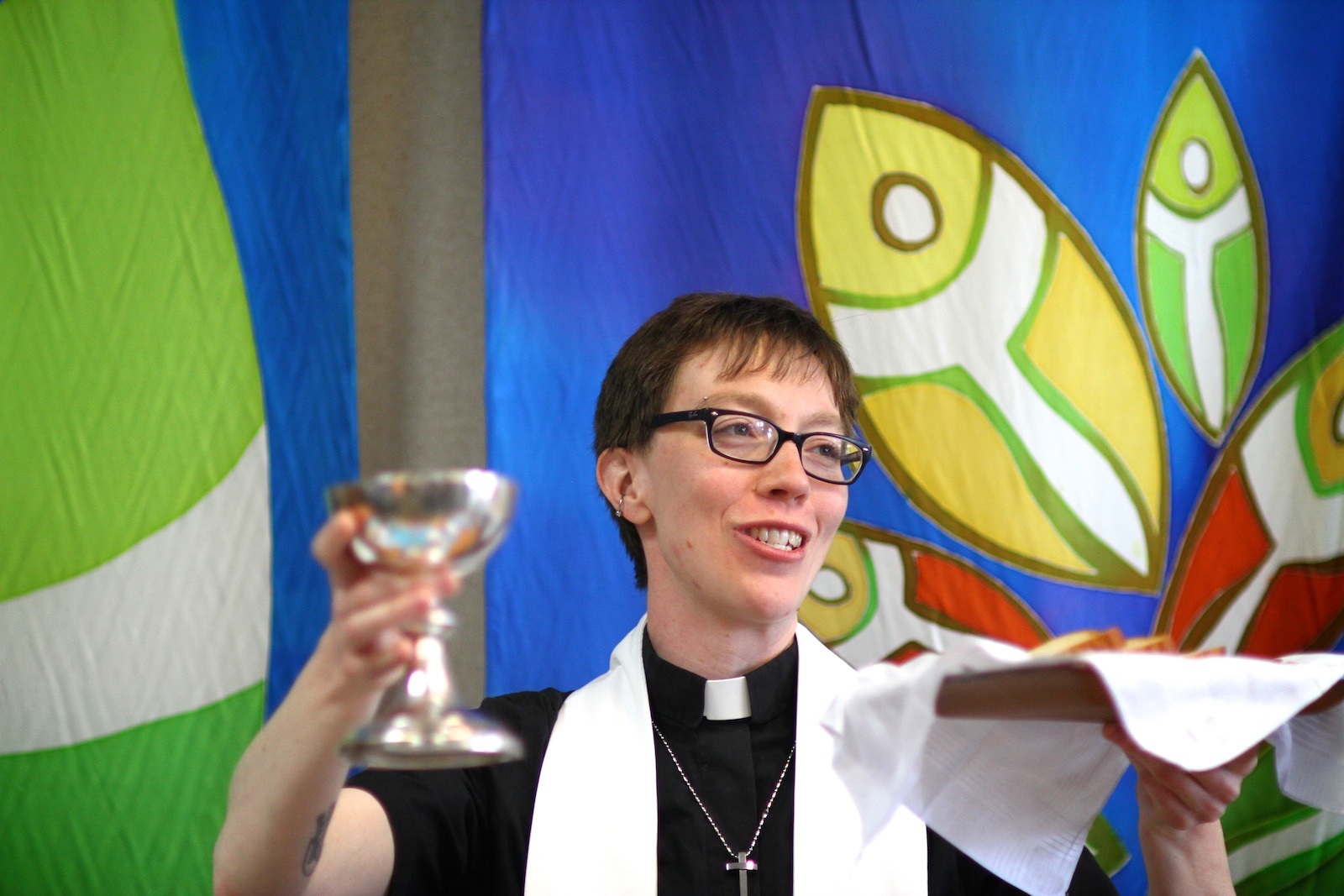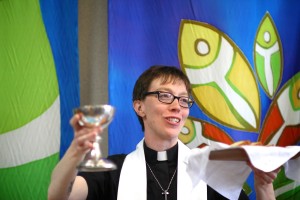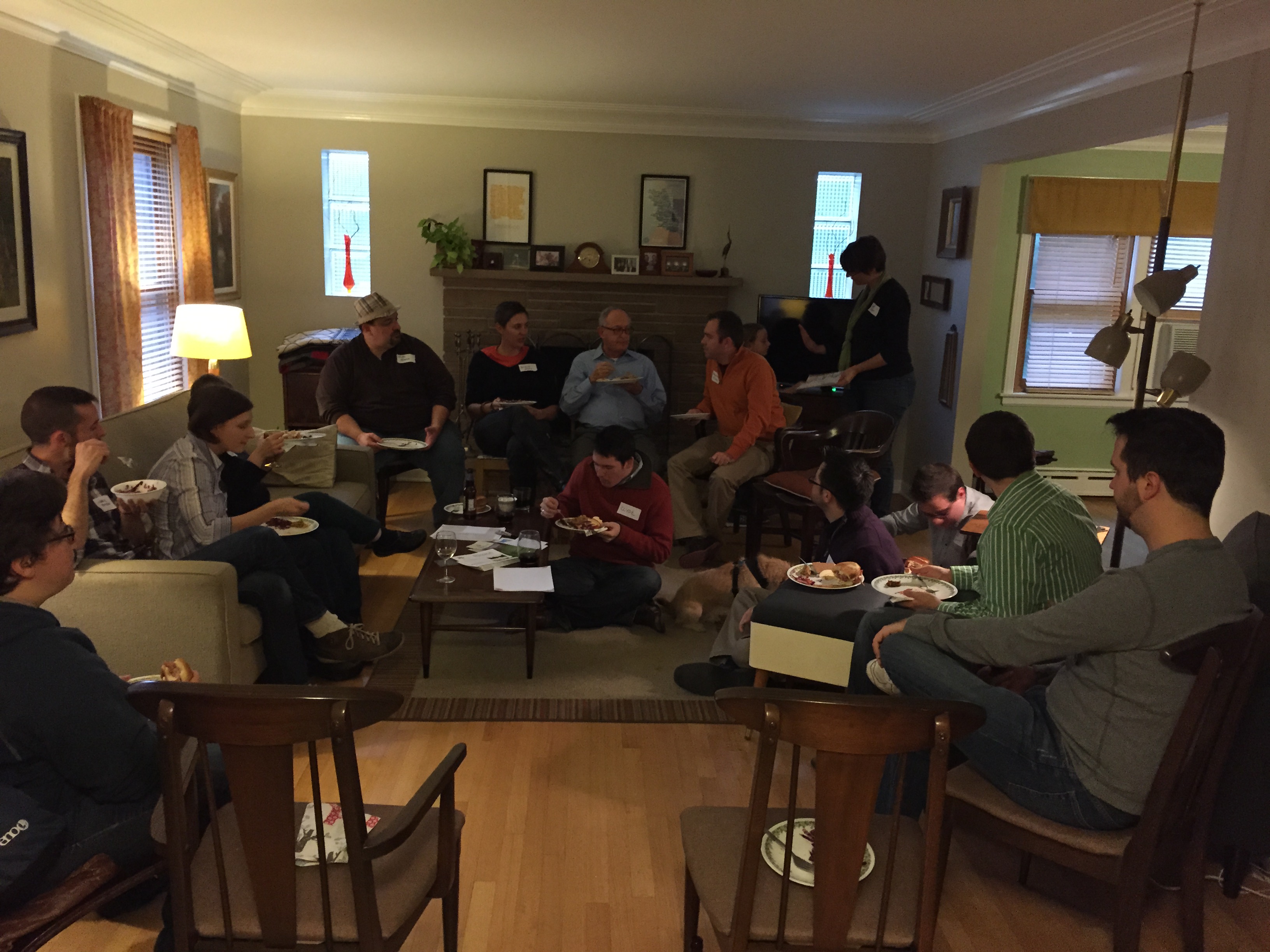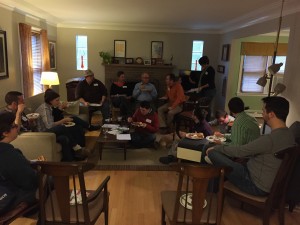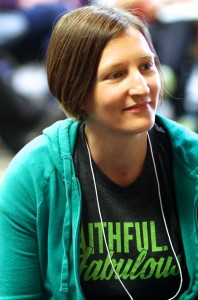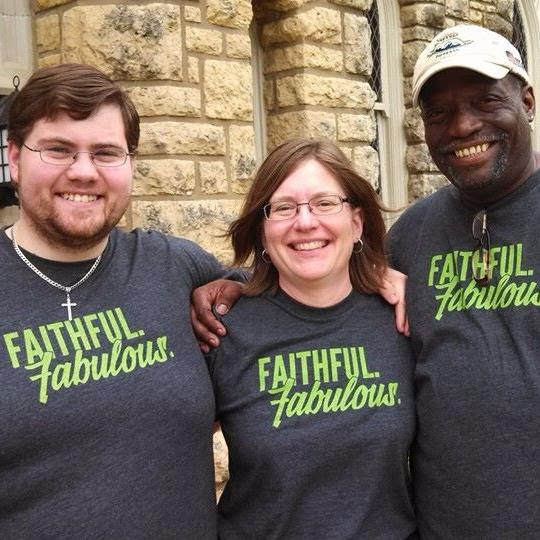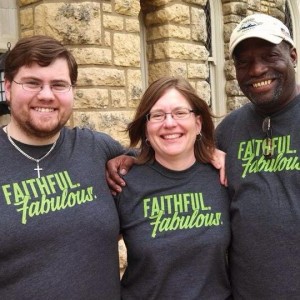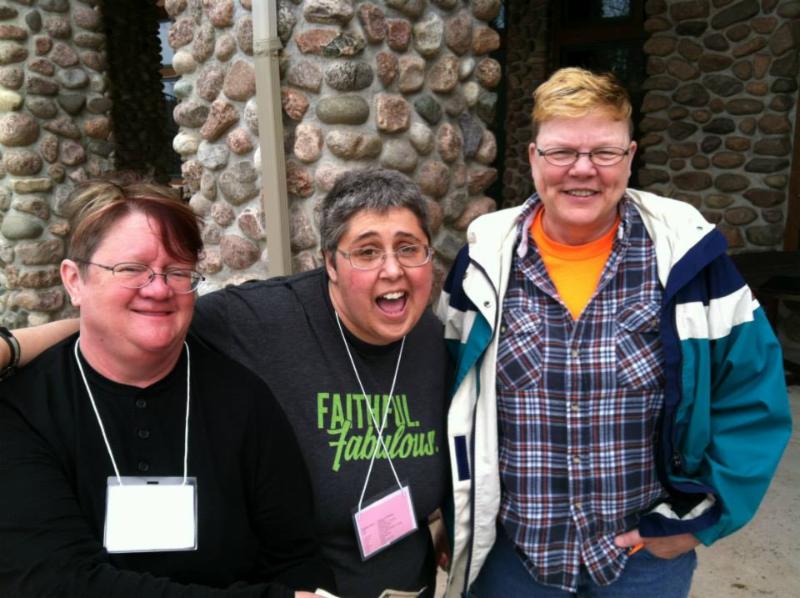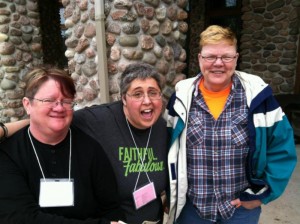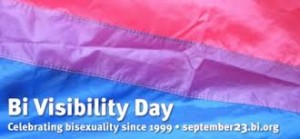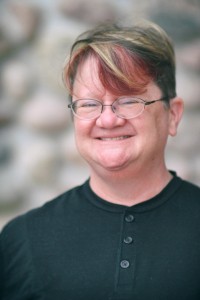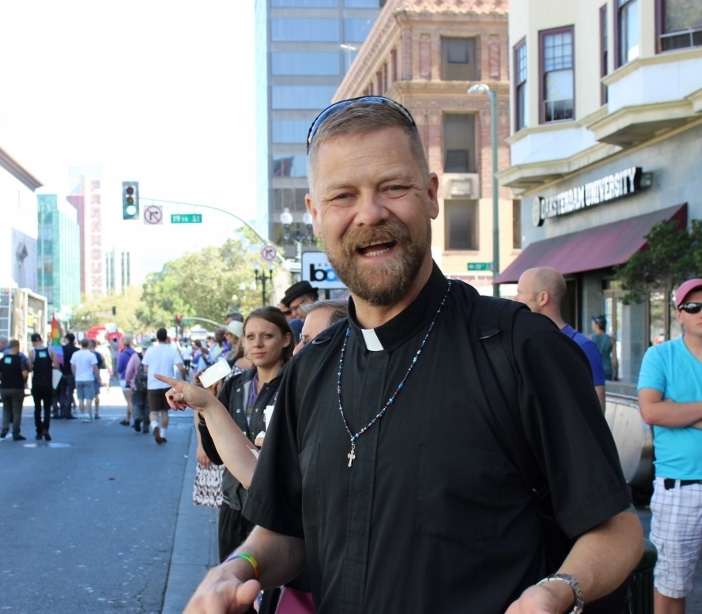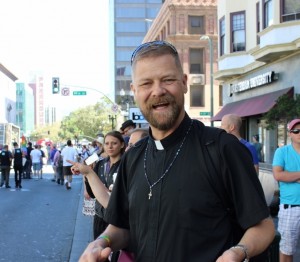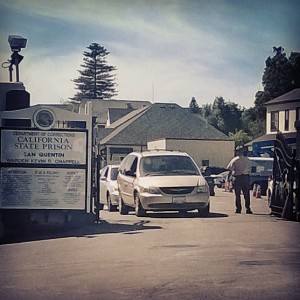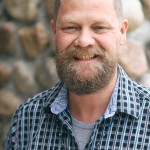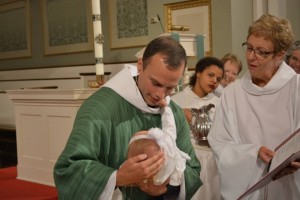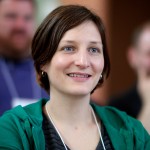Guest blog by Proclaim member, Rev. Brenda Bos.
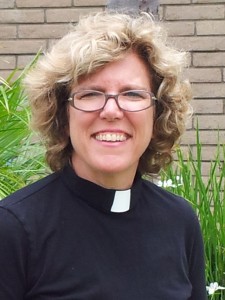 I was among the first class of seminarians to go on internship after the 2009 ELCA decision to ordain LGBTQ clergy. Like my fellow Proclaim members, I don’t know how different my call process would have been if I was straight. I know straight pastors who got calls five seconds after assignment, and I know straight pastors who waited as long as some of the queer candidates.
I was among the first class of seminarians to go on internship after the 2009 ELCA decision to ordain LGBTQ clergy. Like my fellow Proclaim members, I don’t know how different my call process would have been if I was straight. I know straight pastors who got calls five seconds after assignment, and I know straight pastors who waited as long as some of the queer candidates.
Like most gay first call candidates I know, I waited. Then the call came. A congregation in San Clemente was looking for a pastor. They were not Reconciling in Christ, but had a long history of welcome, including gay clergy who were out, gay clergy who were not out. My call committee was very comfortable talking about my wife and was eager to show her how much they wanted to call me. My conference, made up of a smaller cluster of churches in a geographic region of the synod, lost four out of fifteen churches after 2009. Understandably, my colleagues in this conference have been cautious to welcome me. The worst part about being a queer pastor is wondering, am I overly sensitive, or am I being slighted because of who I am?
My church has a service every Sunday on the beach. Even in 45 degree weather in January, about fifty brave souls gather. We have tourists, athletes using the bike path, homeless people. Few visitors know exactly who we are or what we are doing, but they are intrigued by church on the sand. But because of this large influx of visitors, I never know how people will react when they find out we have a lesbian pastor.
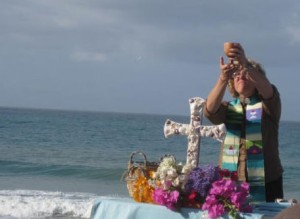 Recently I mentioned my wife in a sermon. A visiting family was sitting in front of some members. The members overheard the woman lean over and ask, “Did she just say ‘wife’?” and he nodded. They didn’t stay for communion. I convinced myself it was because they were Catholic and didn’t want to commune in a Protestant church. Or maybe they had brunch reservations.
Recently I mentioned my wife in a sermon. A visiting family was sitting in front of some members. The members overheard the woman lean over and ask, “Did she just say ‘wife’?” and he nodded. They didn’t stay for communion. I convinced myself it was because they were Catholic and didn’t want to commune in a Protestant church. Or maybe they had brunch reservations.
A couple wanted to join our church. I sat with them and talked about our welcome to the LGBTQ community. They nodded and smiled… and never came back again. A few members of the congregation left before I started this call. Some were shocked we would consider calling an openly gay candidate. As my congregational president said, “They accidentally joined the wrong church,” and we bid them farewell. Well, other members bid them farewell. They split before I hit the scene.
One of the benefits of serving a smaller congregation is the pastor sees every face, every reaction to the sermon. Last Sunday I thought I saw a visitor cringe when I mentioned my wife. It actually threw me off. I started to think, “Has she been here before? Of course she has. Does she not know my story? Is this a problem?” I finally pushed that miserable line of thinking out of my head and kept preaching. I thought I saw her cringe at a few more things I said, and convinced myself that was just how she held her face while listening. After the service (she stayed for communion!) I re-introduced myself, not sure I remembered her name, etc. She was enthusiastic, loves this service, splits her Sundays between this church and a Catholic church up north. I had read her reactions incorrectly, and had made myself pretty uncomfortable while freaking out.
But I am sad that I wonder what people think. My council has told me in no uncertain terms to stop wondering what people think. But there is still a moment as I come out where I wonder what the ramifications will be. It’s not a good thing. Of course, there are people who feel liberated knowing their pastor is lesbian. Some are in same-sex relationships, but the majority of my congregation is just happy to be a part of an inclusive community. This is a time of great joy in my community, and I am so happy to be a part of their celebration of welcome. Still. It needs to be named: our shame, even when we’ve “worked through it”, is deep and insidious and throws us for curves at times and places we do not anticipate. I am loud and proud and most of the time am met with open arms. I am so grateful for the Proclaim community who shares in the joys and struggles of this calling. Perhaps someday I won’t worry what reactions I receive from coming out. I have been called to love Jesus and to love a woman. I long for the day when the gospel of Jesus Christ is my only scandal.
Brenda Bos is six months in to her first call and is relieved and delighted to report she loves the work. Before becoming a pastor, Brenda was a production manager for network television sitcoms. The similarities between her two careers are myriad.

